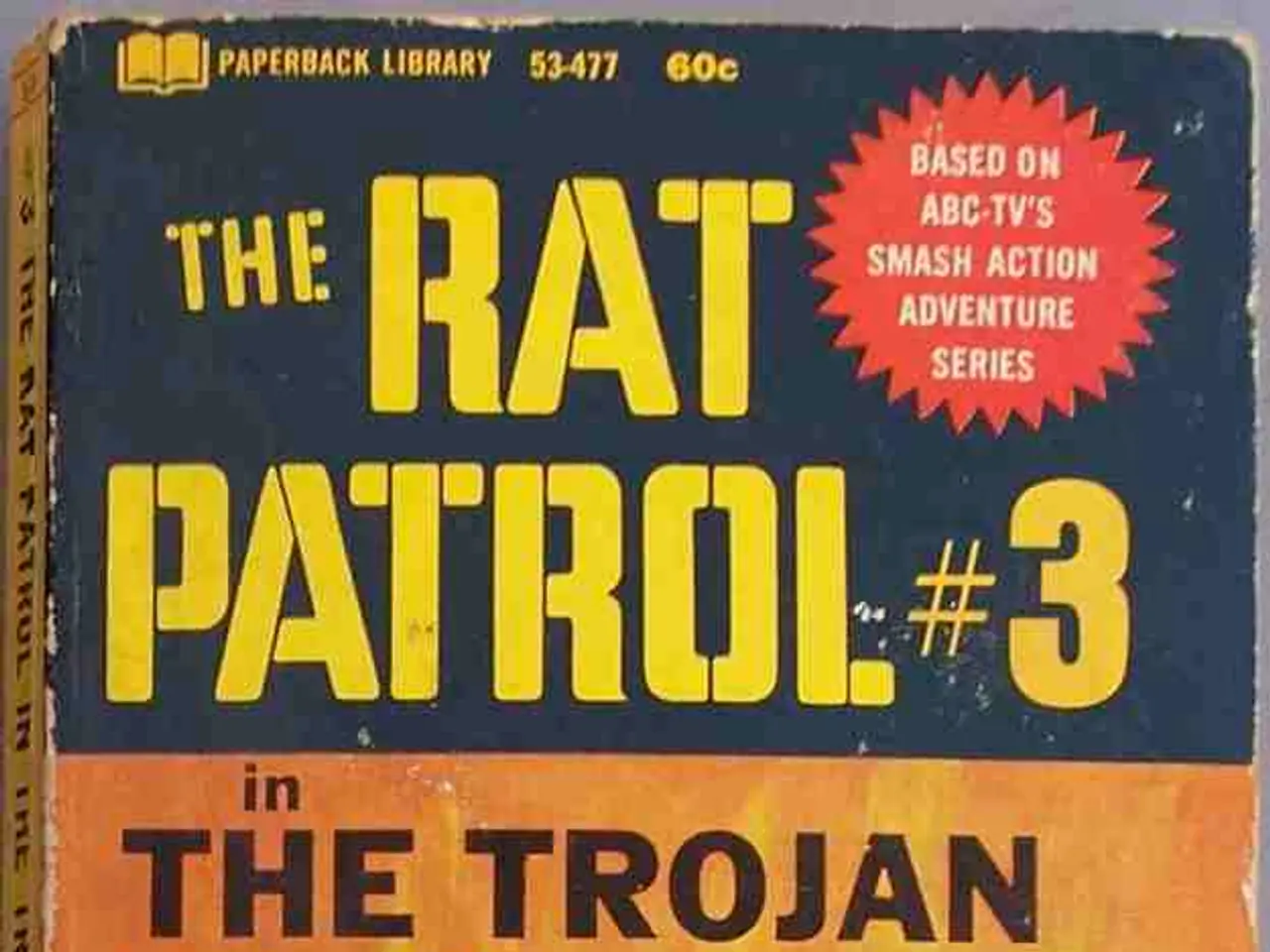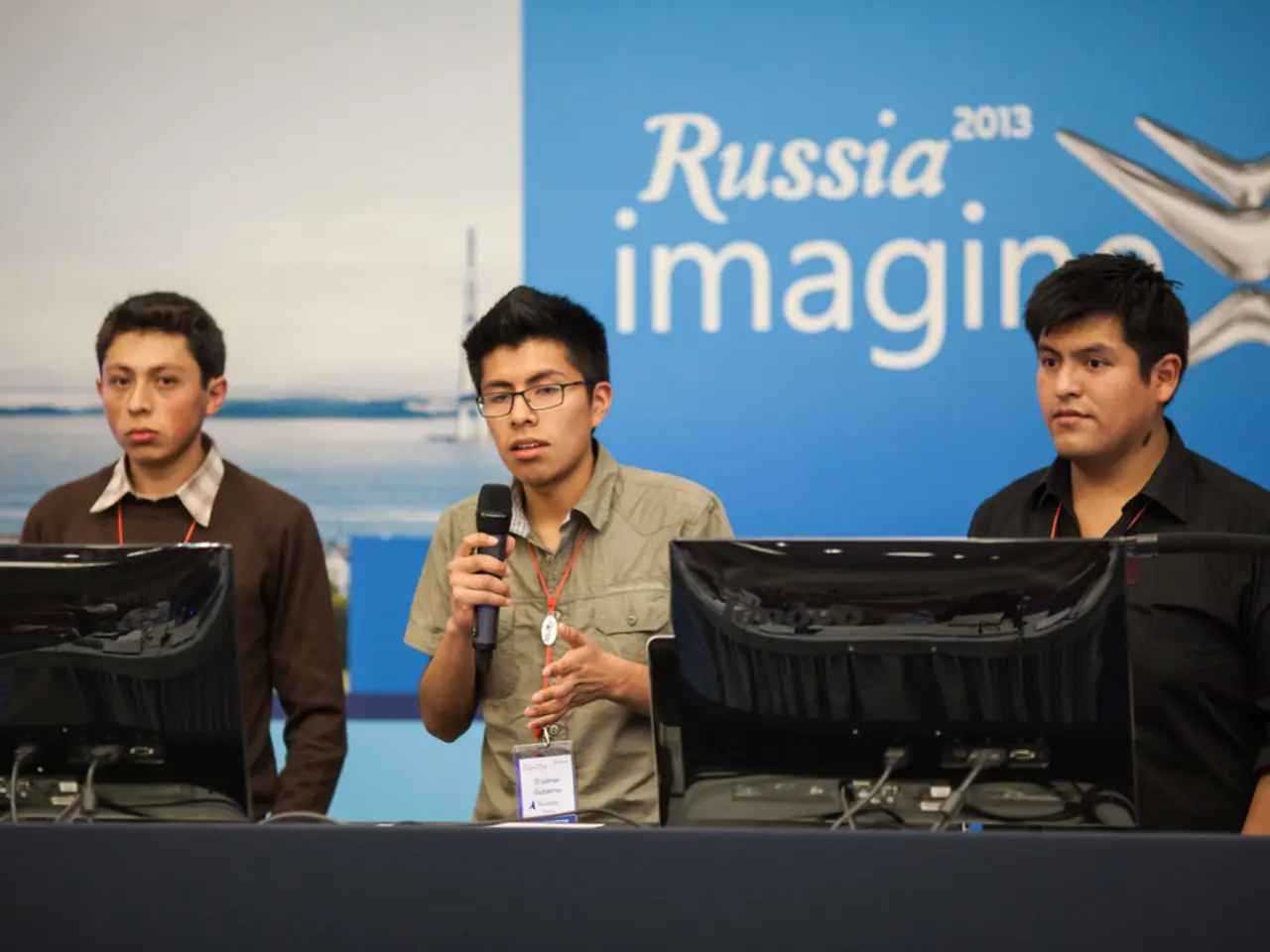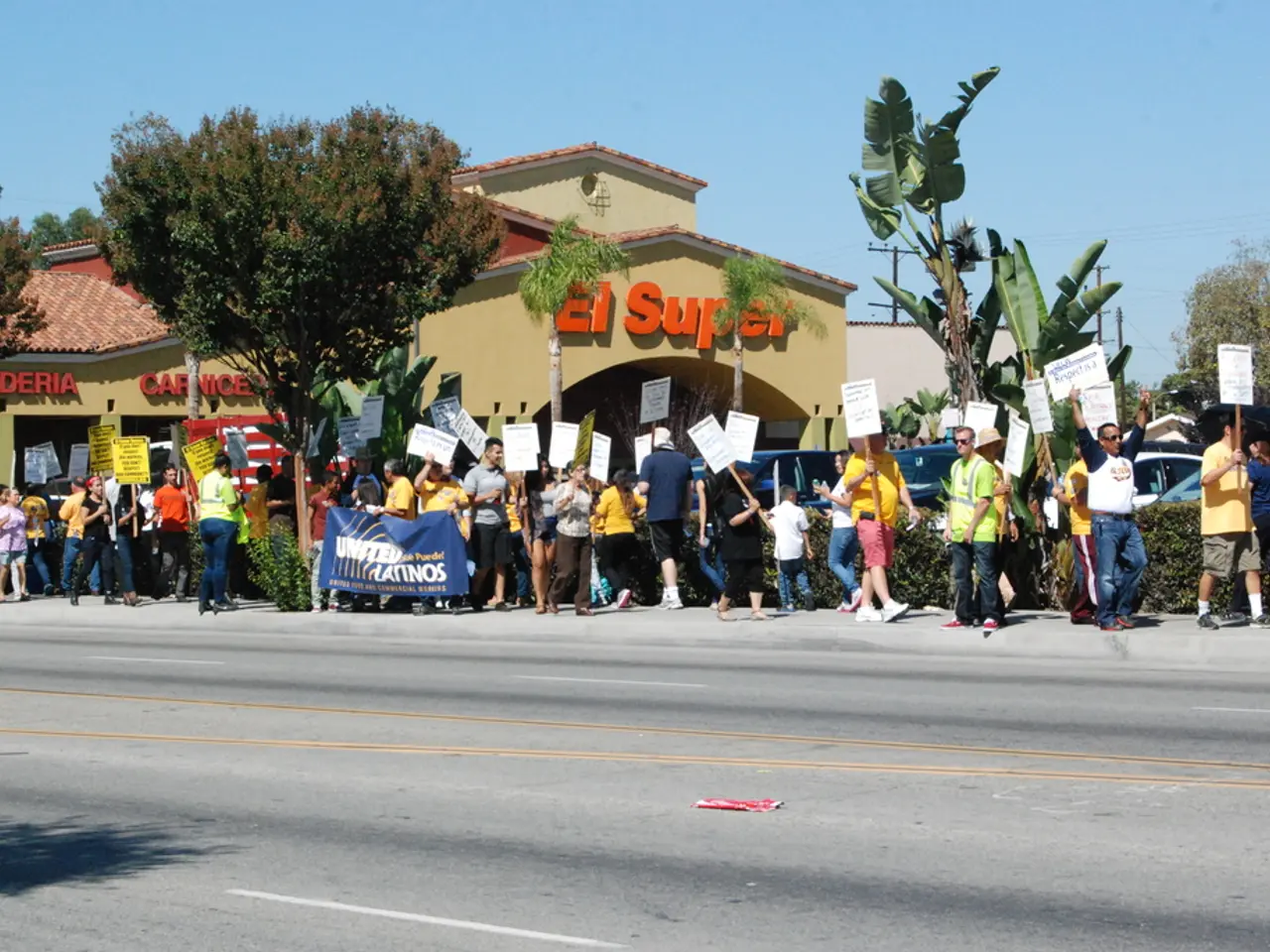Challenging Inequality: Rebuilding Peace and Justice by Decolonization in Palestine-Israel
In the complex and ongoing conflict between Palestine and Israel, transitional justice efforts are gaining international attention as a potential path towards accountability, reconciliation, and peace. The issuance of arrest warrants by the International Criminal Court (ICC) for Israeli leaders, including Benjamin Netanyahu, Yoav Galant, and a Hamas leader, Mohammed Diab Ibrahim Al-Masri, marks a significant moment in the history of the region [2].
The "Nakba," or the displacement of the indigenous Palestinian population during the early days of Israel's establishment, continues to cast a long shadow over the region. Dispossession, violent land appropriation, and creation of zones of exclusion persist in the form of expanding settlements in the illegally occupied West Bank, East Jerusalem, and the Syrian Golan Heights [1].
The situation is further complicated by ongoing violence, humanitarian crises, and systemic issues such as human rights violations, racial discrimination, and accusations of apartheid. The United Nations Human Rights Council and various civil society groups have highlighted Israeli policies criticized as apartheid-like and systematically discriminatory against Palestinians [2][4].
Transitional justice initiatives aim to address these historical injustices and systemic violence. They engage with documenting and acknowledging abuses such as enforced disappearances, arbitrary detention, and extrajudicial killings to confront the legacy of the Nakba [1]. Legal mechanisms, such as ICC investigations and ICJ rulings, attempt to address systemic violence and war crimes, though enforcement and compliance remain significant challenges [2].
International and local advocacy groups frame Israeli policies towards Palestinians as apartheid and systemic racial discrimination, seeking recognition of these issues as central to any justice and reconciliation processes [2][4]. Platforms have been formed that unite survivors, families of victims, activists, and legal experts to push for justice, including campaigns to uncover the fate of forcibly disappeared Palestinians and hold perpetrators accountable [1].
However, active conflict and political divisions in the region have hindered the establishment of comprehensive transitional justice frameworks, with ongoing violence and lack of political consensus limiting practical progress. The international criminal justice system, too, has faced accusations of systemic bias, particularly against leaders from the Global South, and has endured attacks and sabotage from major global powers like the U.S. and Russia [6].
Yet, an honest and radical commitment to truth and reconciliation is essential for Palestinians and Israelis to live side by side or together. The Israeli state's approach to historical memory, as demonstrated by the 2011 Nakba Law and the 2014 Jewish Nakba Law, reveals an active effort to prioritize one group's memory over another's and to dismiss claims for recognition and redress [5].
The right of return for Palestinians, as recognized by international law, is pivotal to achieving lasting peace. Israeli officials have begun advocating for resettlement in Gaza, suggesting a shift in perspective that could potentially open up new avenues for dialogue and compromise [3].
Proposing transitional justice as a path forward does not require endorsing either a one-state or a two-state solution. Instead, it acknowledges the diversity of visions for the future within both Palestinian and Israeli societies [4]. The memory of the Nakba remains vivid among Palestinians worldwide, as deeply ingrained and enduring as the trauma of the Shoah within Jewish communities globally [5].
Transitional justice, which emerged after the atrocities committed during the Second World War, offers valuable analytical and practical frameworks for addressing the past and ending cycles of violence and discrimination. As efforts continue to unfold amid ongoing conflict and entrenched systemic issues, the hope remains that transitional justice can pave the way towards a more just and peaceful future for Palestinians and Israelis alike.
[1] Al Jazeera. (2025, May 15). Transitional justice in Palestine and Israel: Challenges and opportunities. Al Jazeera. Retrieved from https://www.aljazeera.com/news/2025/5/15/transitional-justice-in-palestine-and-israel-challenges-and-opportunities
[2] Human Rights Watch. (2024, December 15). ICC Issues Arrest Warrants for Israeli Leaders. Human Rights Watch. Retrieved from https://www.hrw.org/news/2024/12/15/icc-issues-arrest-warrants-israeli-leaders
[3] Middle East Eye. (2025, February 12). Israel proposes resettling Palestinians in Gaza. Middle East Eye. Retrieved from https://www.middleeasteye.net/news/israel-proposes-resettling-palestinians-gaza
[4] Amnesty International. (2025, March 15). Apartheid in Israel and Palestine: A System of Domination and Crime Against Humanity. Amnesty International. Retrieved from https://www.amnesty.org/en/latest/reports/2025/03/apartheid-israel-palestine-system-domination-crime-against-humanity/
[5] B'Tselem. (2025, April 15). The Nakba Law: A Tool for Erasing Palestinian History. B'Tselem. Retrieved from https://www.btselem.org/publications/2025/04/the-nakba-law-a-tool-for-erasing-palestinian-history
[6] International Criminal Court. (2025, June 15). ICC Faces Accusations of Systemic Bias. International Criminal Court. Retrieved from https://www.icc-cpi.int/news/icc-faces-accusations-of-systemic-bias
In the ongoing discourse of war-and-conflicts, politics, general-news, and crime-and-justice, the International Criminal Court (ICC) issuing arrest warrants for Israeli leaders is a significant moment, particularly given the complex historical context marked by the Nakba and the systemic violence endured by the indigenous Palestinian population. Transitional justice initiatives, aiming to address these historical injustices and systemic violence, engage with relevant issues, such as the right of return for Palestinians and the acknowledgment of abuses, seeking recognition and accountability for all parties involved.





